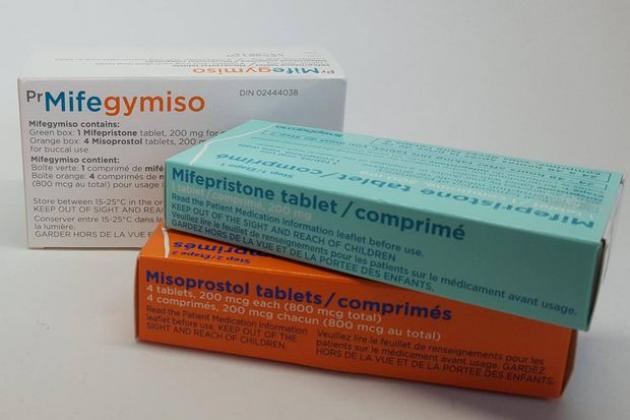
Source: Andrea Woo | Globe and Mail
British Columbia will offer universal access to a medical abortion drug in a move that women’s-health advocates say will particularly benefit those who live in rural and remote communities where abortion services are lacking.
The move makes B.C. the sixth province to fund the two-drug combination of mifepristone and misoprostol since it became available in Canada one year ago. Nova Scotia, New Brunswick, Alberta, Ontario and Quebec also offer the drug at no cost. The pills, sold under the brand name Mifegymiso, retails for upwards of $300.
Wendy Norman, a family doctor and a University of British Columbia professor studying the uptake of the drug, says the move will particularly benefit people in rural and remote communities, where limited services can mean having to travel to an urban centre to receive an abortion.
“Being able to have the medication also covered by the government, this helps tremendously so that women can access care in their own communities and can judge whether medical or surgical abortion is better for them based on what their health needs are, not what their postal code is,” Dr. Norman said.
Mifegymiso is recognized as the gold standard for medical termination of pregnancies and the World Health Organization (WHO) lists it as an “essential medicine.”
However, Stephanie Fennelly, spokeswoman for the Edmonton-based Wilberforce Project, which opposes abortion, said the drug should not be promoted in rural areas, where women need better health care in general. She noted that there have been deaths linked to the abortion pill.
“What we see in Alberta is that this drug is highly promoted to women in rural areas and we see a real health risk there because we’re promoting a drug that killed a woman under medical supervision and we’re offering it to people who are the furthest from medical supervision,” she said.
The WHO reviewed 39 trials involving the drug and found that “major complications seem to be rare, the most common complication being blood transfusion (about 0.2 per cent).” It did note that close medical supervision is required.
B.C.’s PharmaCare has covered Mifegymiso for some low-income people since July, but Tuesday’s announcement makes it accessible for all women who want it. Universal, no-cost coverage begins Jan. 15.
Dawn Fowler, executive director of the Vancouver Island Women’s Clinic and former Canadian director of the National Abortion Federation, called Tuesday “a significant day for women and reproductive choice in B.C.”
“It is important that cost is not a factor for women when deciding to terminate an unplanned pregnancy,” Ms. Fowler said.
The drug was first licensed in France and China 30 years ago and is now available in more than 60 countries. Health Canada approved Mifegymiso in 2015, but its roll-out was hampered by restrictions that included the requirement that doctors – not pharmacists – had to distribute the drug directly to women and that the first pill be ingested in front of a doctor. Health Canada has since eased those restrictions at the urging of pro-choice advocates.
However, some advocates say a remaining requirement that women first have an ultrasound, to ensure the pregnancy is not ectopic (outside the uterus), remains a barrier.
“The problem with that one is that in a lot of the rural and remote places we’re talking about, ultrasound technology is hard to access,” said Darrah Teitel, spokeswoman for Action Canada for Sexual Health and Rights.
The requirement could lead to delays in administering Mifegymiso within the nine-week gestation period, the advocacy group says. (Health Canada announced in November that the drug could be administered up to nine weeks into pregnancy.)
A 2016 article on medical abortion in the Journal of Obstetrics and Gynaecology in Canada said that, in the absence of readily accessible ultrasound, gestation age and ectopic pregnancy could be assessed through clinical history and physical examination. (An ultrasound is needed if uncertainty remains.)
Ms. Teitel said Action Canada for Sexual Health and Rights will be pushing for Manitoba, Saskatchewan, Prince Edward Island, Newfoundland, Yukon, the Northwest Territories and Nunavut to pledge cost coverage.
With a report from The Canadian Press